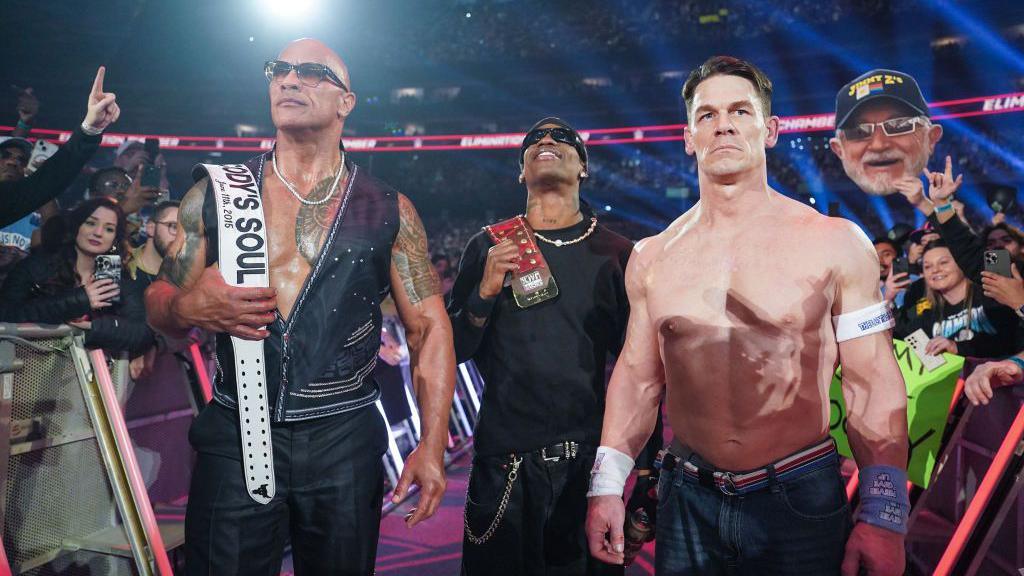Maybe the actual very last thing the world needs or ever will need, ever again, is for one more man’s power or fame or brilliance or death to be used as a reason to throw the word “complicated” over his abuses like an obscuring blanket. It’s a dishonest sidestep, anyway. Everyone is complicated. You can be a tortured mass of endless complications and still never sexually assault anyone.
What the fact of having committed, or having credibly been accused of committing, sexual assault complicates for an acclaimed celebrity is the feelings—or maybe, at most, the immediate social situation—of those who’d like to go right on celebrating him. Ironically, or maybe not ironically, nothing smooths this complication more easily than the word “complicated”: Be sure to include it in your hosannas. It is a way to skip past the discomfort and ambiguity of actually grappling with the acclaimed celebrity’s monstrousness straight to the part where you congratulate yourself for having done so. I have integrated the fullness of this imperfect person; when I now return to praising him, be sure that it is with the appropriate level of personal internal conflicted feeling.
Videos by VICE
It seems reasonable to guess that former Los Angeles Laker star Kobe Bryant was a complicated person, because he was a person and not the Archangel Gabriel. More relevant to a summation of his life, he was also a great and spectacular basketball player, one of the biggest stars in the history of the sport, and a powerful man who, in 2003 and at the height of his celebrity, was credibly accused of raping a 19-year-old hotel employee and then avoided a trial by leaking his accuser’s identity and shaming her into silence. I don’t think these things complicate each other, unless you happen to believe there’s a personal moral component to being good at making contested jump-shots.
I watched literally thousands of hours of Kobe Bryant playing basketball. If his abilities never quite lived up to his legend, he was a marvel nevertheless: a game-breaking athlete in his youth and then, in his prime and after, a terrifyingly honed master of the crafts of basketball, whose focus and attention to detail put most of his peers to shame. Even years after the extremely public sexual-assault case—which ended with a public statement of apology by Bryant that certainly seemed to put beyond doubt the fact that he’d forced nonconsensual sex upon his accuser—it was possible for me to watch him play and be not only impressed by his skills but also swept up into something like admiration for the diligence, professionalism, and competitive drive that had gone into building and refining all the little nuances of each one of them. I don’t think that says much of anything particular about Kobe Bryant that could not apply equally to any number of other brilliant acclaimed men who did awful things to people—to women —and on whose behalf the rest of society spent the rest of history saying Yes but he was such a genius. Mostly it says something about me, and it isn’t that I’m complicated.
Neither Kobe’s on-court achievements nor his having played his entire career for the Lakers, the nexus of the basketball universe, fully explain the mythic stature he acquired during his career, and which his early death seems certain to crystallize. A thing for which to give him a kind of backhanded credit is this: He understood basketball’s mythmaking apparatus as well as anyone ever has, and manipulated it more brazenly and with less shame than any great player or coach before or since. At a time when the sport’s gatekeepers and pundits explicitly measured each young talent against Michael Jordan (and, because Jordan was by miles the greatest player in the game’s history to that point, found all of them desperately wanting), Bryant arrived in the NBA having meticulously and with eerie fidelity copied not only all of Jordan’s basketball moves, right down to the flat arc on his jumper, but Jordan’s entire style of movement, his body language, his gestures, his speech patterns, and even his facial expressions. More than that, Bryant also openly patterned his interpersonal style after Jordan’s famed competitive monomania—his habit of bullying, antagonizing, and big-timing his own teammates in the name of either bringing out their best or flatteringly depicting his own lofty standards. Cannily, Bryant paired this act with a smarmy, performative reverence for the sport’s history and for every great player who came before him; this was his one real area of difference from Jordan, a genuine fucking psycho who would never be caught out showing even the smallest sincere admiration or deference to any other person, living or dead.
It’s important to put this into context. Today the conversation around the NBA is characterized by broad and sometimes performative progressivism, especially toward the sport and the people who play and coach it: Stylistic innovations are good and welcome; each next bushy-tailed 19-year-old is cool and revolutionary; nobody wants to be the one caught voicing skepticism about the future. That was not the case in 1996, when Bryant entered the league. The sport’s gatekeepers, like Bryant himself, had internalized and built an entire ethos out of the idea that what made Jordan so great and successful was his acid contempt for his peers and disdain for the NBA, the league he’d big-timed into crisis in 1993, when he blithely walked away from it at the peak of his powers to play minor-league baseball for a year. The discussion belonged to sour, aging, conservative cranks like Peter Vecsey and Bob Ryan, whose sole analytical pose toward the league was that everything in it sucked and was unworthy of Michael Jordan.
Kobe agreed with them. More than that: He was that agreement made flesh. To root for him was—could be—to root for the idea that Michael Jordan was still better than everything that came after him; that it was fine for your curiosity about the sport and about the people who played it to have calcified and become perfectly inert forever at the moment you decided Jordan was the greatest of all time. When he won, it just proved there was nothing new to learn about the game. Naturally, the mythmakers loved him. He was their Good Son.
That only worked because he really did win five championships, bust a lot of asses along the way, and author some of the most spectacular individual performances of his generation. But it’s right to be chilled—if not surprised even a little bit—by how little the mythmaking was affected by the fact of the abundantly public and credible sexual-assault accusation, the fact that the details of this were available for anybody who did not want to look away from them.
In retirement, Bryant settled comfortably into a role he’d spent years preparing for: Pope Emeritus of Basketball, popping up from time to time—always amid conspicuous mention that his busy schedule of Dynamic Business Visionary activities left little time for engaging as deeply with the sport as when he stood astride it—to homilize the virtues of basketball excellence and beatify this or that younger star as possessing the blessed traits of greatness, always via a rhetorical framework grooved to the orthodox sensibilities of the game’s scolds. So, praise for professionalism and commitment and, like, The Will To Deny Oneself The Pleasures Of Life For The Sake Of Being A Better Employee or whatever; studied indifference to, for example, whether a given player did lots of cool-ass basketball shit.
Maybe that just really, authentically was how he saw the sport. But dribbling and shooting and defending and boxing out aren’t only basketball skills. More relevant to this specific discussion, they’re also ways that a basketball player builds a reputation. In that regard they’re in the same bucket as comportment and self-presentation and media savvy. Knowing how to read a literal or figurative room. Knowing what the refs will let you get away with. If you felt Kobe Bryant was overrated as a player or a smarmy, sniveling dickweed as a public figure or a sociopath as an actual person, it’s pretty inarguable that he excelled at pretty much all the skills that build a basketball player’s reputation—and which protect a public figure from any serious reckoning with his sins.
Yesterday, a helicopter carrying Kobe Bryant, his 13-year-old daughter Gianna, and seven others (including the pilot) crashed into a hillside in Calabasas, California and caught fire; all aboard were killed. Bryant was 41 years old; he is survived by his wife Vanessa and their three remaining daughters.
Follow Albert Burneko on Twitter.
More
From VICE
-

WWE via Getty Images -

Lexie Moreland/WWD via Getty Images -

Camp Snap -

Juiced
